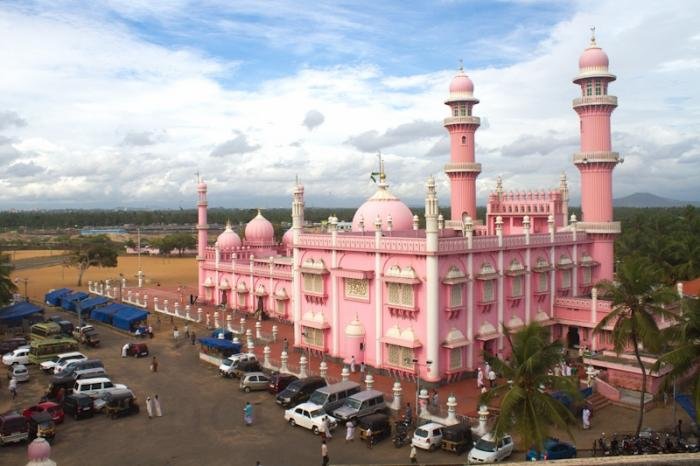Unlocking Entrepreneurial Opportunities: Exploring the Intersection of Religious and Social Practices in India

India, a land of diverse cultures, religions, and traditions, offers a fertile ground for entrepreneurial endeavors driven by religious and social practices. The intricate tapestry of beliefs and customs not only shapes the social fabric but also paves the way for innovative business models. From pilgrimage tourism to wedding ceremonies, from festivals to rituals, the rich tapestry of Indian culture presents a myriad of opportunities for astute entrepreneurs. This article delves into the religious and social practices in India that have fostered thriving business ventures, illuminating the symbiotic relationship between tradition and entrepreneurship.

Also read – Planning Your Trip to Ayodhya from Rajasthan
1. Pilgrimage Tourism:
India, called the land of spirituality, attracts hundreds of masses of pilgrims from throughout the globe each 12 months. The sacred net web sites, temples, mosques, church homes, and unique religious landmarks aren’t satisfactory religious hubs but moreover bustling centers of monetary interest. marketers capture upon this possibility through supplying a plethora of services consisting of accommodation, transportation, guided excursions, spiritual products, and food catering to the wishes of pilgrims. The pilgrimage circuits in India, like the Char Dham Yatra, Kumbh Mela, and Amarnath Yatra, witness a surge in enterprise organisation sports, developing employment possibilities and using financial growth within the regions.
Also read – Everything You Need To Know About Chhappan Bhog

2. festivals and Celebrations:
India, recognized for its colourful festivals and celebrations, gives a fertile ground for entrepreneurial ventures. From Diwali to Holi, from Eid to Christmas, festivals permeate each factor of existence, fostering a subculture of gifting, feasting, and celebration. marketers capitalize on these events by way of presenting a various variety of products and services which includes festive attire, goodies, decorations, event management, and present items. The burgeoning e-commerce quarter similarly amplifies the enterprise opportunities at some stage in festive seasons, enabling entrepreneurs to reach a much broader target market and improve income.

3. wedding ceremony enterprise:
Weddings in India are intricate affairs characterized by way of grandeur, culture, and extravagance. the marriage enterprise, anticipated to be well worth billions of dollars, contains a plethora of offerings ranging from venue control to catering, from bridal couture to event planning. marketers leverage this booming enterprise via presenting specialized services tailor-made to the diverse cultural and spiritual options of the purchasers. destination weddings, theme-based ceremonies, and comfort wedding ceremony reports have emerged as lucrative niches inside the wedding industry, attracting each domestic and worldwide consumers.

Also read – Top 5 Pilgrimage Places To Visit in India from Delhi in January
Also read – Places to Visit Near Varanasi
4. Ayurveda and well-being Tourism:
India, the birthplace of Ayurveda, has witnessed a resurgence of hobby in traditional wellness practices in current years. Ayurvedic treatments, yoga retreats, and well being tourism have come to be increasingly popular among each home and international vacationers in search of holistic recuperation reports. marketers capitalize on this trend by using organising health resorts, spa facilities, Ayurvedic clinics, and organic well-being merchandise catering to the developing demand for opportunity healthcare solutions. the combination of modern-day amenities with conventional healing practices creates a unique cost proposition for well being vacationers, riding increase within the sector.

5. Cultural studies and Handicrafts:
India’s wealthy cultural history and creative traditions provide a treasure trove of opportunities for entrepreneurs inside the tourism and handicraft sectors. Cultural excursions, historical past walks, art workshops, and handicraft exhibitions offer immersive studies for vacationers keen to discover India’s numerous cultural panorama. entrepreneurs collaborate with artisans, craftsmen, and cultural experts to exhibit indigenous crafts, acting arts, and culinary traditions, thereby preserving cultural background and generating livelihoods for nearby communities. The emergence of social organizations and fair alternate projects similarly underscores the significance of ethical and sustainable enterprise practices in selling inclusive increase.

Conclusion:
In conclusion, the religious and social practices in India serve as catalysts for entrepreneurial innovation and economic development. By harnessing the power of tradition, culture, and spirituality, entrepreneurs create value not only for themselves but also for society at large. The dynamic interplay between tradition and entrepreneurship fosters creativity, diversity, and resilience, shaping India’s economic landscape in profound ways. As India continues to embrace its cultural heritage while embracing modernity, the entrepreneurial spirit remains at the heart of its journey towards progress and prosperity.
